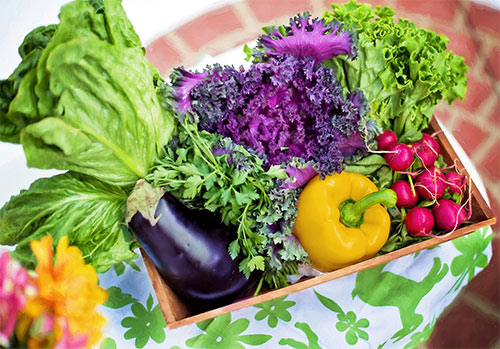
Photo by Jill Wellington on Pixabay.
Have you ever wondered about the difference between organic foods and non-organic foods? Are organic foods healthier than non-organic foods? Why are organic foods more expensive? What does it take for food to be classified as organic? Today, we will take a look at some of these questions and explore what it means to classify food as organic.
Organic Food Certification
The USDA (United States Department of Agriculture) is responsible for certifying crops or food as organic. Farmers must first develop a plan to comply with federal regulations. They must describe how their operation runs and what substances (if any) they plan to use during their growing and harvesting process. Second, they must execute their plan and get it reviewed by an agent. The agent will come by and inspect the plan they have in place. Third, they will receive an inspection that can vary in depth, depending on what exactly agents decide to examine. Fourth, another agent will review the report left behind by the inspecting agent. Lastly, you will receive a decision and congratulations! Your crops have been certified as organic!
Is Organic Food Better For You?
There is a common misconception that organic foods are better or healthier for you. This idea is not inherently the case. Organic food doesn’t contain any more nutrients than non-organic food. There are a few benefits to buying organic rather than non-organic. The major difference would be the lack of pesticides, chemicals, and added hormones for growth. The lack of these additives is where the name organic stems from. Non-organic foods can have traces of pesticides, so experts recommend washing these fruits and veggies before eating them. It’s a personal preference as to whether or not you’re comfortable with the differences between the two foods. Research has shown that, nutritionally, there is no difference between the two foods. The only major stipulation would be the possible exposure to pesticides, which could lead to cancer, but the likelihood of getting cancer from eating a grape is very slim.
Why Is Organic Food More Expensive?
This one is a bit on the nose. Organic food is more expensive because it takes more time and care to produce organic food. The demand is also not as high for organic food. Many consumers look for the cheapest options and don’t mind the health implications. This approach leads to lower demand for the food and a steeper price. Some foods cost around the same price or, in rare cases, cheaper than their non-organic counterparts. It truly depends on your preferences. Marketing, in particular, isn’t high for organic food vs. non-organic food; this equals less exposure and fewer sales.
When buying one type of food over another, your selection depends on your beliefs and budget. Take the time to compare the food at the local grocery store. It can’t hurt to be in the know and may even find a new favorite. Take into consideration what foods you’re comfortable purchasing. Keep in mind that some foods are exposed to more pesticides than others, so it may be in your best interest to buy organic in that instance. The likelihood of getting cancer from these foods is slim but never zero.
Did you like this article? Check out this article from our sister site, Coffee in the Morning.
Have Health Insurance Questions?
We hope that this information on Organic vs Non-Organic Foods was helpful for you.
Insurance is oftentimes overwhelming, and we want to shed light on the industry by answering your questions. Comment below and your question may be the topic of our next post!
If you liked this article, share it with your friends!
Empower Brokerage wants to help you find the insurance coverage you need and help you save money getting it. Stay on top of your health and give us a call at (844) 410-1320.
Get affordable health insurance quotes by clicking here.
See our other websites:

